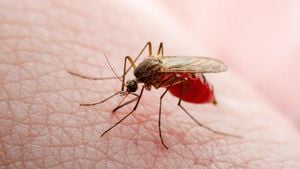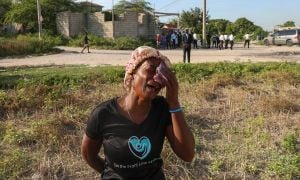DAKAR, Senegal — The situation for civilians in Mali has seen a significant deterioration since the United Nations peacekeeping mission's withdrawal late last year, according to a recent report by Human Rights Watch. The watchdog group accuses Mali's armed forces, backed by Russian mercenaries, of committing serious human rights abuses against civilians.
The report highlights the intensification of violence, where Malian forces and the Russia-backed Wagner Group have been implicated in deadly attacks. Specifically, they allegedly killed at least 32 civilians since May, which includes seven deaths from drone strikes alone. Further, the report claims four individuals were kidnapped, and over 100 homes were burned in various villages across central and northern Mali.
Beyond the immediate violence from government forces and their mercenary allies, the report also sheds light on other threats faced by civilians. Jihadi groups reportedly executed at least 47 civilians and displaced thousands, along with burning vast numbers of homes and looting livestock, which is especially devastating for the region's nomadic communities.
“The Malian army, together with the Wagner Group and Islamist armed groups, have been targeting civilians and their property, violating the laws of war,” stated Ilaria Allegrozzi, senior Sahel researcher at Human Rights Watch. Each attack on civilians not only raises immediate concerns for the victims involved but also deepens the instability across the Sahel region, where Mali, Burkina Faso, and Niger have been grappling with insurgency and violence for over a decade. These conflicts are often compounded by the activities of groups with links to al-Qaida and the Islamic State.
Since the military coups leading to the current juntas’ rise to power, these governments have moved away from alliances with France, traditionally seen as their security partner, and instead have turned increasingly to Russian resources. The Wagner Group, which has filled the vacuum left by the departure of French troops and the UN's own peacekeeping forces, has reportedly become more active and aggressive since its arrival.
Wagner’s presence has been reported since late 2021 after Mali’s military takeover, and they have been cited as instrumental not only alongside government forces but also as active participants in raids and drone strikes targeting insurgents, which too often result in civilian casualties.
The UN’s decade-long peacekeeping mission, known as MINUSMA, was withdrawn following what the Mali government described as ineffective measures against the growing insurgency. Human Rights Watch’s report indicates this vacuum has made it exceedingly difficult to gather information on human rights abuses, leaving the current situation obscured and alarming.
“Since MINUSMA left Mali last year, obtaining comprehensive information on abuses has become very challenging, and we fear the situation may be worse than it appears,” Allegrozzi elaborated, reflecting broader concerns within the international community.
This prolonged conflict has severely impacted civilian life, with humanitarian crises exacerbated by continuous violence and governmental neglect. Efforts to seek accountability for these incidents remain complicated by the realities on the ground, as militant groups and rogue military units continue to terrorize the populations, leaving communities fractured and afraid.
The interplay between military strength and the erosion of human rights creates complex challenges for Mali as it attempts to navigate its future. With the UN’s exit, the role of international oversight has drastically diminished, raising questions about stability and governance moving forward. Such dynamics could spell continued chaos not just for Mali but the region at large as well, breeding resentment and destabilization.
Human Rights Watch urges immediate attention to protect civilians caught in this turmoil, emphasizing the need for accountability for involved parties and highlighting the urgency of humanitarian assistance to displaced populations and victims of these violent encounters.
The international community is called to intervene, as the systematic targeting of civilians under the guise of counterterrorism strategies violates fundamental human rights and principles of justice. Sustained advocacy and pressure may be the only way to mitigate this growing crisis and restore any semblance of peace and order.



